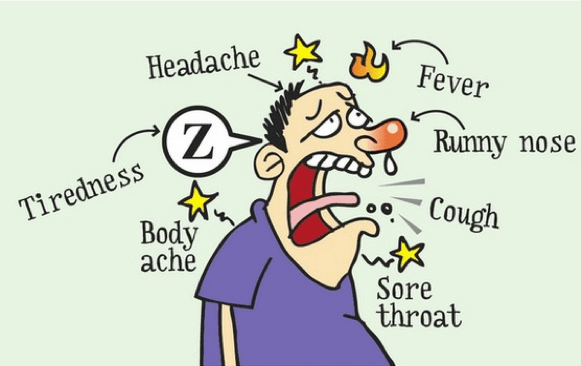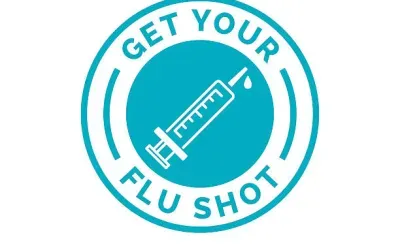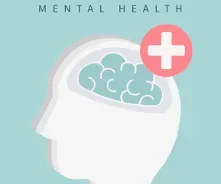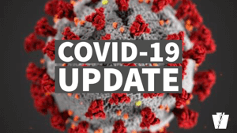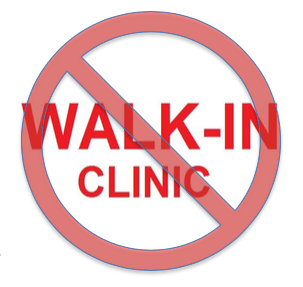COVID-19 Vaccine – Patient Update
With the recent approval of the Pfizer and Moderna COVID vaccines by Health Canada, Canadians have something to look forward to in 2021. After discussing how the vaccine will be distributed in Ontario, this article will explore and answer the most commonly asked questions we have received from patients.
Vaccine Distribution
The COVID vaccines will be distributed in three phases, to the residents of Ontario:
Phase 1: Priority population in the GREY-lockdown and RED-control area
Phase 2: Expanded access to priority populations (more vaccination sites)
Phase 3: All eligible Ontarians – vaccines widely available across the province
Priority Populations to receive vaccinations between Dec 2020 to Jan 2021:
- Residents, employees, staff and essential caregivers of living settings that provide care for seniors
- Healthcare workers
- Adults in First Nations, Métis and Inuit populations
- Adult recipients of chronic home health care
Question 1: How has the COVID vaccine been developed so quickly?
mRNA (messenger ribonucleic acid) is a way of transferring information of the building blocks of our genetic makeup or DNA (deoxyribonucleic acid) to the cells which make the protein. The strategy of using mRNA in the development of vaccines and other therapies has been around for some time and is one of the reasons why these vaccines could be developed so quickly. mRNA vaccines have been used in animals for influenza, Zika, Rabies and in humans for cancer treatment and cancer vaccine trials. mRNA vaccines are like ‘CD players’ that can play any kind of ‘CD’. Using this antiquated analogy, one can think of it as scientists having had the CD player before COVID-19 pandemic came to be. Once they figured out the ‘Coronavirus CD’, they could place it into the CD player and make the vaccine a lot faster than before, by building on what information was already known.
Question 2: Do I really need to take this vaccine? I’m not in a high-risk group for COVID-19.
COVID-19 is much more serious than the flu. In Canada, the flu kills roughly 3,500 patients per year. In less than a year, COVID-19 has killed 4 times as many patients.
More than 14,000 Canadians have died of COVID-19. Even if a young and healthy person does not die, they may have long term complications affecting multiple organ systems. Long-term effects include memory loss, fatigue, body aches, unexplained breathing difficulties, and damage to the lungs and heart. Even if a young and healthy person does not develop severe COVID-19 infection, you may still pass on the virus to someone who will. If you are vaccinated, you’re helping protect the people around you in what is known as herd immunity — that is once a critical mass of patients are immunized, the number of cases diminishes significantly. Vaccination is a key step in helping control and eventually stopping the pandemic.
Question 3: Did scientists skip any steps in the vaccine production and approval?
No steps were skipped in the process of developing, testing, approving, and producing the vaccines. Health Canada’s independent scientists have thoroughly reviewed all of the data before approving the vaccines as safe and effective for Canadians. The vaccines were produced faster than before not because of skipped steps but because of unprecedented international collaboration and funding. Normally, vaccine clinical trials need ~8000 people for the approval process. The Pfizer-BioNTech trial had over 45,000 people and the Moderna trial over 30,000. Unlike with other vaccines that go one step at a time and then plan the next step, for the COVID-19 vaccines, governments invested in having companies plan all the steps at the beginning and build up their manufacturing capacity.
Question 4: How do mRNA vaccines work? How are they different from the vaccines we received when we were children or that our children have received prior?
The purpose of any vaccine is to mimic the infection, thereby allowing the body’s natural defense mechanisms to build immunity to the virus but not cause the full-blown illness. The vaccine will train the immune system to recognize COVID-19 and respond quickly if you are ever exposed to the actual COVID-19 virus. mRNA is something we already rely on in our bodies. On a regular basis, mRNA carries genetic messages from the DNA (genetic makeup) to the ribosomes – the “kitchen” of each cell, where the proteins we need for everyday life are made. mRNA is the recipe that carries information for protein production. Our immune system “reads” our proteins to develop antibodies, tools that fight off the infection. A COVID-19 mRNA vaccine contains the genetic material to make the ‘spike protein’ that instructs the immune system to develop antibodies against COVID-19. This spike protein does not cause disease; rather, when our immune system sees the spike protein made, it builds antibodies to it. The vaccine does not stay in your body and does not change your genetic make up. After the protein is made, the cell breaks down the recipe instructions (mRNA).
Questions 5: Do the Pfizer and Moderna vaccines contain mercury, formaldehyde, aluminum or fetal cells?
No, both vaccines do not have any of the ingredients mentioned above. For a full list of ingredients for both vaccines, please see reference 2 at the end of this article.
Questions 6: If I get the vaccine, does that mean I cannot become infected with COVID?
No. Vaccinated individuals can still be infected, but vaccination greatly reduces the risk of infection, developing a severe version of disease and death due to the disease.
Question 7: There have been unsafe vaccines created in the past. How can the government and healthcare providers be so sure these vaccines are safe?
It is true that some vaccines in the past were associated with adverse events and then removed from the market. Those vaccines were not tested in nearly as many people as the COVID-19 vaccines. Normally, vaccine clinical trials need ~8000 people for the approval process. The Pfizer-BioNTech trial had over 45,000 people and the Moderna trial over 30,000.
Question 8: Can this vaccine cause COVID-19 in me?
The vaccine cannot give you COVID-19. None of the licensed vaccines so far use the live virus that causes COVID-19. It is still possible to contract COVID-19 after you have been vaccinated. Like other vaccinations, it takes a few weeks for the body to build immunity after vaccination. Someone could be infected with the virus just before or just after vaccination and get sick, because the vaccine didn’t have enough time to provide protection.
Question 9: What are the side effects of the Pfizer and Moderna vaccines?
Most people can expect to feel a sore arm, a bit of tiredness and a mild headache as the vaccine starts to work. Some people will feel muscle aches, joint pain, chills or a mild fever. Reactions at the injection site will improve by 48-72 hours. Rare side effects include anaphylaxis.
Question 10: Is there anyone who should not get this vaccine?
The vaccines are currently not approved for pregnant and breastfeeding women, patients younger than 16-18 years old, cancer patients and those whose immune system may be weak. If you need any further guidance or are unsure about these categories, you must speak to your family doctor before you consider getting the COVID vaccine.
Question 11: I would like to delay getting the vaccine once it is offered to me to see what delayed side effects or other issues may show up in others before getting it myself. Will this cause any issues?
The pandemic – and the lockdowns and public health measures – will not end until the majority of Canadians are vaccinated. To ensure we can vaccinate everyone as quickly as possible, it is important that people access the vaccine the first time it is offered to them. Canada has purchased more shots per person than any other country in the world and will be getting those vaccines delivered over time. If you wait to get vaccinated and get infected in the meantime, you may end up in hospital – which would vaccine, the pandemic will keep going – and that includes the restrictions, inability to put more strain on the system than getting the vaccine. If Canadians wait to get the see family and friends, send your kids to school, travel etc.
References
https://www.ontariofamilyphysicians.ca/tools-resources/covid-19-resources/covid-19-vaccines/fp-covid-vax-questions.pdf
https://tools.cep.health/tool/covid-19-vaccines/#addressing-patient-questions-about-vaccines
https://www.dfcm.utoronto.ca/covid-19-community-practice
